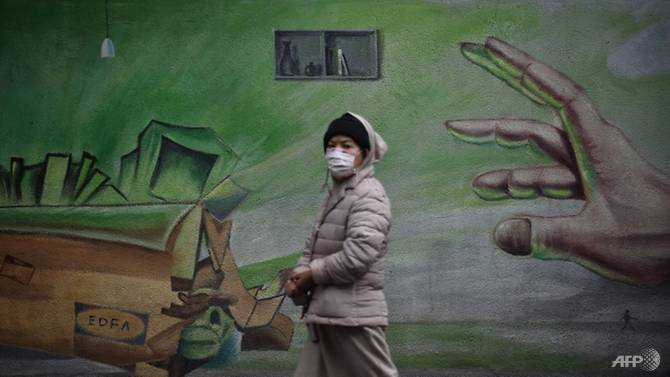'It's like someone's struck pause on life': China turns to therapy amid virus lockdown
10 March, 2020

Therapists, counselling hotlines and online wellness groups in China are struggling to cope with surging demand for emotional help as the coronavirus outbreak upends regular life.
A good shortage of mental health providers is exacerbating the challenge in the country where unprecedented methods to contain the deadly outbreak have left tens of millions in lockdown and much more fearful to go exterior.
"Every day we have about 20 callers. Some possess watched their family members perish without access to medicine in the early days and nights of the virus, when there weren't enough medical center beds," explained a psychologist surnamed Xu, who gets results at a medical center in Wuhan, the epicentre of the epidemic.
"Most calls happen to be from coronavirus patients concerned about slow outcomes after medical treatment or those anxious about being infected."
As the crisis drags on and quarantine orders stay in place, many are struggling with the uncertainty over how long they will be kept in isolation.
That is fuelling boredom, loneliness, and anger, said Chee Ng, a professor of psychiatry at the University of Melbourne.
"The much longer the quarantine, the worse the mental health outcomes," Ng said.
While frontline staff have borne the brunt of the mental pressure due to the virus, which has infected a lot more than 80,000 people in China, numerous others are feeling the strain.
Students stuck in the home taking online lessons, pregnant women and couples grappling with too little childcare are all trying for help vent their fears and frustration.
China's National Wellbeing Commission said a lot more than 300 hotlines have already been create by universities, native governments and mental overall health organisations.
But China has only 2.2 psychiatrists for each and every 100,000 people, in line with the World Health Organization.
Amid a severe shortage of trained pros, the government has only been able to muster a team of 415 counsellors to visit Hubei to serve an army of health staff and thousands of patients.
Volunteers at several hotlines in Beijing and Shanghai told AFP that these were not given crisis intervention training, making them susceptible to secondary trauma.
"Some volunteers cry after their session has ended," explained Ming Yue, a trainee psychiatrist who volunteers with a nationwide hotline function by Beijing Regular University.
"They look sad and overwhelmed."
Xu the psychologist told AFP she does around 30 minutes of meditation each day before starting just work at the hospital.
"That's how We cope," she said.
"Otherwise, the psychological burden is overweight."
"TIRED AND IRRITABLE"
Doctors and nurses treating virus patients are particularly vulnerable to mental stress - especially if they experience to take care of sick colleagues.
"Through the SARS outbreak, practically 89 % of health employees reported some kind of psychological influence," Ng said, discussing another coronavirus found in China in 2002-2003.
A lot more than 3,400 wellness workers in China have been infected with COVID-19, according to officials.
And status media propaganda - which portrays health staff as heroes and martyrs - could actually prevent them from obtaining the help they want, Ng warned.
"When you are supposed to live some expectation - of somebody who is good, committed and dedicated due to a health profession - it is hard to essentially reveal the vulnerabilities that they experience," he said.
Du Mingjun, secretary general of Hubei Psychological Consultant Association, said he has simply received a small number of telephone calls from frontline doctors and nurses.
"Many who call say they look tired and irritable," Du said.
"But many are too busy or perhaps too shy to seek help."
The shortage of trained professionals has resulted in online groups with hundreds engaging. Therapists show recorded meditations, stories and soothing music.
"It feels like an individual offers hit the pause button on life, and it's really unclear when they'll hit take up again," said among the individuals from Wenzhou, an eastern town also under lockdown.
Even following the outbreak is over, nevertheless, the mental scars from the ordeal could linger for a long time, Ng warned.
"Studies have displayed that even at three months or twelve months (following the epidemic) the psychological influence persists," he said.
Source:
TAG(s):
